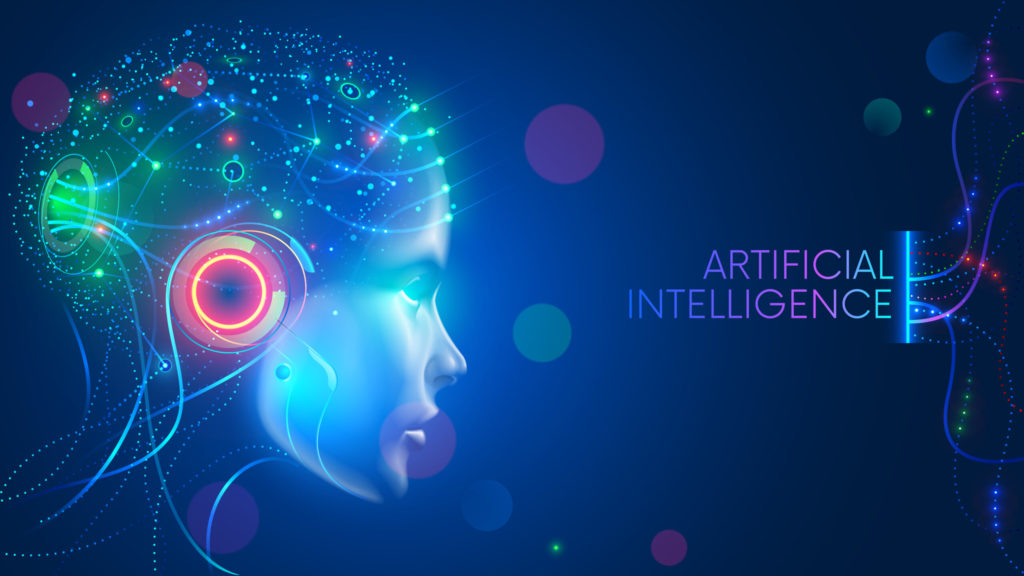Artificial Intelligence (AI) has become a buzzword in the technology world in recent years, and for good reason. AI has the potential to revolutionize the way we live and work, making many tasks faster and more efficient. It’s an exciting time to be in the tech industry, and if you’re a beginner, it’s never been a better time to start learning about AI.
In this article, we’ll provide a comprehensive introduction to AI and its many use cases, as well as some of the most common questions about AI. We have seen a lot of chatbots and new systems around AI. So let’s get the ball rolling.
Read More:
What is Artificial Intelligence (AI)?
Simply put, AI is the simulation of human intelligence in machines that are designed to think and act like humans. These machines are programmed to perform tasks that would normally require human intelligence, such as speech recognition, problem-solving, decision-making, and more. The ultimate goal of AI is to create machines that can operate independently, without human intervention.

Read More:
Use cases of Artificial Intelligence
From self-driving cars to virtual personal assistants, AI is rapidly changing the way we live and work. But for many people, the concept of AI is still shrouded in mystery and confusion. The use cases of AI are so broad but here are some of them:
- Natural Language Processing (NLP)
- Image and Video Recognition
- Speech Recognition
- Recommendation Systems
- Fraud Detection and Risk Assessment
- Predictive Maintenance
- Virtual Personal Assistants
- Customer Service Chatbots
- Self-driving Cars
- Healthcare Diagnosis and Treatment
- Personalized Marketing
- Language Translation
- Investment Portfolio Management
- Supply Chain Optimization
- Crime Prediction and Prevention.
For instance, AI is being used in customer service to respond to customer inquiries more quickly and accurately. Additionally, the healthcare sector is utilizing AI for disease diagnosis and individualized treatment recommendations. Additionally, the financial sector is utilizing AI for fraud detection, transaction monitoring, and investment recommendation.
Related:
Negative Speculation about AI
Despite the numerous benefits and advancements brought about by AI, there are also concerns and negative speculations surrounding the technology. Some of these include:
- Job loss: AI is believed to take over jobs traditionally performed by humans, leading to unemployment and income inequality.
- Bias and Discrimination: AI algorithms are only as good as the data they are trained on, and if the data is biased, the AI system will perpetuate that bias.
- Lack of accountability: As AI systems become more advanced and autonomous, it becomes more challenging to determine who should be held accountable in the event of a failure or malfunction.
- Security Risks: AI systems are vulnerable to cyberattacks and other security threats, which can result in sensitive data being compromised or critical systems being disabled.
- Lack of human creativity: There are concerns that AI will lead to a loss of human creativity and individuality as machines become capable of performing tasks that were previously the sole domain of humans.
It is important to address these concerns and speculation to ensure that the development and deployment of AI are responsible and ethical.
Read More:
Frequently Asked Questions about AI
Frequently asked questions (FAQs) about AI are a common topic of discussion among individuals who are new to the field of AI. These questions can cover a range of topics, from the basic definition of AI to the potential consequences of its widespread use. Here are some of the most common questions about AI, along with answers to help provide a better understanding of this rapidly growing technology.
- How does AI work?
AI works by teaching algorithms to recognize patterns in large amounts of data and make decisions based on those patterns. The algorithm gets better at making accurate predictions and decisions the more data it is exposed to.
- What are the various kinds of AI?
AI can be broken down into three broad categories: super AI, narrow AI, and general AI. While general AI is designed to be capable of performing any intellectual task that a human can, narrow AI is designed to perform specific tasks like language translation or image recognition. A hypothetical AI of the future that is capable of surpassing human intelligence in multiple domains is referred to as “super AI.”
- Is AI secure?
If AI is developed and used responsibly, it can be safe. Additionally, there are concerns regarding the risk of malicious use of AI systems and their security.
- Who is accountable for AI systems’ actions?
It becomes increasingly difficult to determine who is accountable for AI systems’ actions as they become more autonomous. At the moment, AI systems’ creators and owners are accountable for their actions.

How to get involved in AI
To get started using AI, you can start by learning programming languages such as Python or R, and familiarizing yourself with machine learning libraries and frameworks. You can also explore online courses, tutorials, and resources to gain a deeper understanding of AI and its applications.
There are still ways to get involved in the AI field even if you are not a developer. You can get started learning about AI by taking the following steps:
- Learn from what you read: Start by learning the fundamentals of AI and how it can be used by reading books, articles, and online resources. You will have a solid foundation on which to build.
- Take classes online: A great way to learn about AI and how it can be used is through online courses. You can learn about AI concepts, algorithms, and programming languages by taking courses on platforms like Coursera, Udemy, or edX.
- Join communities online: Participate in AI-focused online forums or social media groups. You will have the chance to meet other people who are interested in AI and learn from their experiences through this.
- Participate in AI events: A great way to keep up with the latest developments in the field and network with other professionals is to attend AI conferences and events.
- Donate your time to AI projects: Volunteering your time and expertise is another way to become involved in AI projects. You can, for instance, volunteer to assist with data collection, labeling, and other important non-technical AI project tasks.
Read More:
Conclusion
In conclusion, the world of Artificial Intelligence is rapidly expanding and offers a wide range of opportunities for individuals of all backgrounds to get involved. Whether you are a developer, non-developer, or just someone looking to gain a deeper understanding of AI. If you have enjoyed reading this article and up to this point in time, consider yourself an AI guru (lols), do give us feedback too in the comment section.
Discover more from Dignited
Subscribe to get the latest posts sent to your email.












